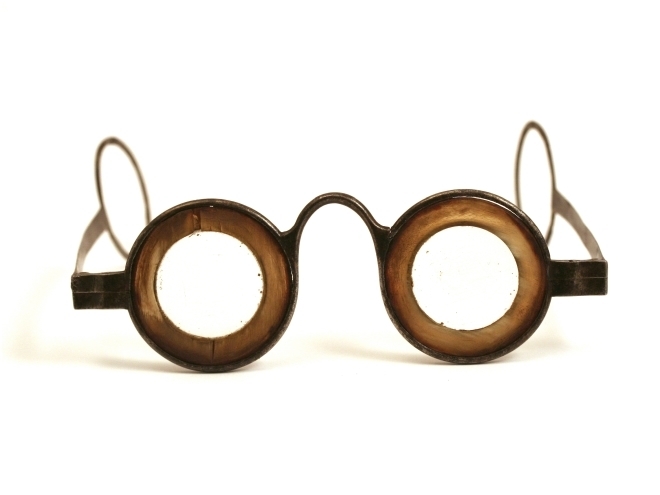Listen to sermon RECAP from Sunday: Habakkuk 2:1-20
RECAP from Sunday: Habakkuk 2:1-20
During evil times our default is to aim our cross-hairs at someone or something to blame. It could be your family of origin or a certain person. Perhaps you blame it on your lifestyle or life experience or a particular philosophy on life. When it comes to societal evils we often times blame the government or blame the capitalists or the homeless.
Blaming something or someone however is too simplistic when it comes to responding to hard times. Solzhenitsyn puts it like this:
"If only it were all so simple! If only there were evil people somewhere insidiously committing evil deeds, and it were necessary only to separate them from the rest of us and destroy them. But the line dividing good and evil cuts through the heart of every human being.”
The source of "evil" is far deeper, and it's not about what has been done to you. We don't like to hear that. We like to think that our difficulties can be solved by changing something - the people in our lives, our philosophy, our lifestyle, our religion, our career, etc.
Christianity teaches us that the source of evil is within ourselves - our spiritual pride. In the vivid language of the Bible, pride is puffing yourself up in God's face. “See, the enemy is puffed up; his desires are not upright - but the righteous person will live by his faithfulness" (Hab 2:2)
Lewis Smedes puts it this way - from his book, Love Within Limits,
“Spiritual pride has to do with how we feel about God. Pride in the religious sense is an arrogant refusal to let God be God. it is to grab God's status for one's self. Pride is turning down God's invitation to join the dance of life as a creature in his garden and wishing instead to be the Creator, independent, reliant on one's own resources. Never does pride want to pray for strength, ask for grace, plead for mercy, or give thanks to God. Price is the grand illusion, the fantasy of fantasies, the cosmic put-on. The fantasy that we can make it as little gods leaves us empty at the center. Once we decide we have to make it on our own, we are attacked by the demons of fear and anxiety. We are worried that we cannot keep our balance as long as we carry no more inside our empty heart than what we can put there. We suspect that we lack the power to become what our pride makes us think we are. So we learn to swagger, to bluff, to use symbols to cover up our fears that we lack substance. We force other people to act as buttresses for the shaky ego that pride created by emptying our soul of God. In the words of God's love song, we become arrogant. Every new situation calls forth the question: "What can I get out of this to support the need of my ego for power and applause?" As he encounters new people, he wonders, "How can this person contribute to my need for applause and power?" He projects his own anxieties onto other people, so when others come to him he wonders, "What is this person's pitch? What does he want from me?" Life becomes a campaign to use people to support oneself and a constant battle to avoid having others use oneself that way. Vanity creates the need to use people because we cannot keep our balance spiritually if we are empty at the center."
This kind of pride leads to vanity. Vanity is emptiness. A person who is empty at the center of life is vain, and a vain person is almost always arrogant. This kind of arrogance breeds contempt and sows seeds of destruction in our lives and the world around us.
Preaching by Ed Park




 RECAP from Sunday: Habakkuk 2:1-20
RECAP from Sunday: Habakkuk 2:1-20 RECAP from Sunday: Habakkuk 2:1-4
RECAP from Sunday: Habakkuk 2:1-4 The incarnation means that for whatever reason God chose to let us fall into a condition of being limited, to suffer, to be subject to sorrows and death—he has nonetheless had the honesty and the courage to take his own medicine.... He himself has gone through the whole of human experience—from the trivial irritations of family life and the cramping restrictions of hard work and lack of money to the worst horrors of pain and humiliation, defeat, despair, and death.... He was born in poverty and...suffered infinite pain—all for us—and thought it well worth his while.
~ Dorothy Sayers
The incarnation means that for whatever reason God chose to let us fall into a condition of being limited, to suffer, to be subject to sorrows and death—he has nonetheless had the honesty and the courage to take his own medicine.... He himself has gone through the whole of human experience—from the trivial irritations of family life and the cramping restrictions of hard work and lack of money to the worst horrors of pain and humiliation, defeat, despair, and death.... He was born in poverty and...suffered infinite pain—all for us—and thought it well worth his while.
~ Dorothy Sayers What does it mean to become ourselves? To be authentic? To honestly live "my life"? What is "my life"? And where does freedom come into play?
Consider a fish out of water. It would gasp for its life. When it is in its element, it has the freedom to be what it was meant to be. Same with an acorn. Leave it above ground and it will eventually die. Put it in the ground and it will realize its true potential.
What does it mean to become ourselves? To be authentic? To honestly live "my life"? What is "my life"? And where does freedom come into play?
Consider a fish out of water. It would gasp for its life. When it is in its element, it has the freedom to be what it was meant to be. Same with an acorn. Leave it above ground and it will eventually die. Put it in the ground and it will realize its true potential. synergy syn·er·gy (sĭn'ər-jē) n.The interaction of two or more agents or forces so that their combined effect is greater than the sum of their individual effects.
synergy syn·er·gy (sĭn'ər-jē) n.The interaction of two or more agents or forces so that their combined effect is greater than the sum of their individual effects. YouTube links referenced in the sermon:
YouTube links referenced in the sermon: Text: James 4:13-17
Speaker: Ed Park
Text: James 4:13-17
Speaker: Ed Park Sunday replay: James 2:18-26
Sunday replay: James 2:18-26